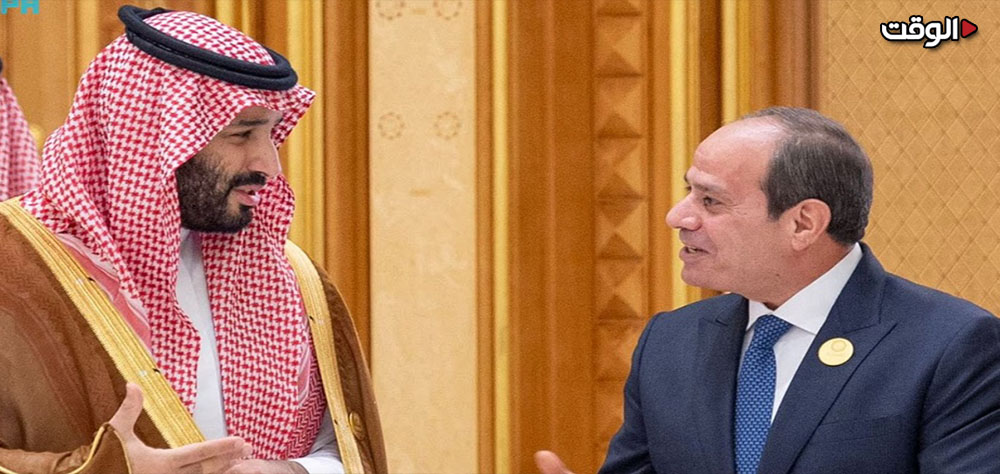Alwaght- The plan that was seemingly put forward by the US President Donald Trump on reconstruction of Gaza and forced migration of the coastal enclave's residents has drawn concerns of Arab countries. In response, the Arab countries seem to be seeking an alternative to this controversial initiative.
Where does Trump's plan come from?
Trump persues his plan for Gaza based on a proposal to force the Gaza people out to the Arab countries and to reconstruct the war-ravaged region with a Western style. According to to DW news, Trump's plan is based on a 49-page document that was issued in last summer by Joseph Pelzman, a professor of economics and author on the US and WTO international trade policy. Pelzman's initiative for Gaza includes the launch of renewable energy, a light rail system, airports and harbors, digital governance, and beachfront hotels.
Plazman said on a podcast last summer that Gaza would have to be completely evacuated for his plan to be realized. He suggested that the US could rely on Egypt to take in Gazan refugees because Egypt is beholden to the US.
Arab governments and impossibility of Trump's plan
Most regional governments have condemned Trump’s plan for Gaza. Egypt and Jordan, the countries Trump has offered to host Gaza residents after the forced migration, have criticized Trump’s plan, and Egypt has made it clear that Gaza’s reconstruction will only be possible if Palestinians remain in the region.
Five Arab countries, Saudi Arabia, the UAE, Qatar, Egypt and Jordan, and Hussein al-Sheikh, an adviser to the head of the Palestinian Authority (PA), also opposed Trump’s plan in a joint letter to the US administration. However, Trump’s argument is based on the assumption that Egypt and Jordan, both of which receive billions of dollars in foreign aid and military support from the US, will have no choice but to accept his plan, although King Abdullah II of Jordan, after a visit to Washington last week, posted comments on social media in which he reiterated Jordan’s consistent position against the displacement of the Palestinians of Gaza Strip and the West Bank. Jordanian officials also fear that if 2 million Palestinians from Gaza are forced to Egypt and Jordan, the 3 million Palestinians living in the occupied West Bank, which borders Jordan, may be the next to be displaced.
Consequences of Trump's plan on Arab countries
It seems that Trump's plan bears consequences for Arab allies of the US, as well as Washington itself and Tel Aviv.
Collapse of US-Jordan security pact: Jordan is one of the closest allies of the US in West Asia, and in 2021, it signed with Washington a defense cooperation agreement, allowing the American military personnel and military aircraft to freely enter its territory and act there. Experts warn that foisting Gazans on Jordan poses an "existential threat" to the government led by King Abdullah's family, and if the Jordanian government falls, security cooperation with the US will also be at stake. From this perspective, it may not be in Washington's best interest to put too much pressure on Jordan, as it will also jeopardize American interests in the region.
End of Egypt Israel-Israel peace: Egypt has also said it will end its long-standing peace treaty with Israel if it forcibly relocates Palestinians to the Sinai Peninsula. There have also been reports of Egyptian military buildup in Sinai, although it is unclear whether the increase in Egyptian military presence in Sinai is a direct response to Trump's remarks. Egyptian President Abdel Fattah el-Sisi has also postponed a planned trip to Washington, possibly in response to Trump.
Israeli-Saudi normalization sinks: Another consequence is that the plan for Israeli normalization with Arab countries have ceased to be an option anymore. Even if Israeli-Saudi normalization can be followed by Trump, the Saudi officials in recent months said that they will not agree to normalize ties with Tel Aviv, unless the normalization clears the way for formation of an independent Palestinian state. Actually, the forced migration is a kill shot to an independent Palestinian state and there is no doubt that the normalization with Saudi Arabia will sink if Gazans are forced out of their land.
Real leverage of Arab countries against Trump
However, Trump has challenges ahead of realization of his plan. Brian Katulis, an author and senior fellow at the Washington-based Middle East Institute, believes that there are almost insurmountable logistical obstacles that must be addressed for Trump to advance his agenda. Katulis argues that the most important leverage that Arab countries have against Trump’s plan is their growing unity in opposition to it and their push for a two-state solution for Palestine.
Also, Ahmed Abboudah, a foreign affairs expert at London-based Chatham House, believes that none of the Arab countries want to be on the same side of the conflict with Trump, but they are trying to form a united front against his plan, and that many Arab countries are in contact with those of the previous administration still in the State Department, the Pentagon and the US Congress to pressure Trump to stop his plan for Gaza.
Meanwhile, some Arab countries have said they will work out their own alternative plans for Gaza rebuilding, and the Arab League emergency meeting that is expected to be held in Cairo later this month will likely issue an Arab draft plan for reconstruction.
Estimated Gaza construction costs are put at more than $30 billion and Egypt has said that it will possibly organize a Gaza donation conference. Marwan Muasher, vice president for studies at the Carnegie Endowment for International Peace, in a piece said that Arab League may take measures to help Cairo and Amman should Trump decide to cut off regular American aid to the two. This said, it seems that Arab countries plan to challenge Trump's plan with strong hands.



























